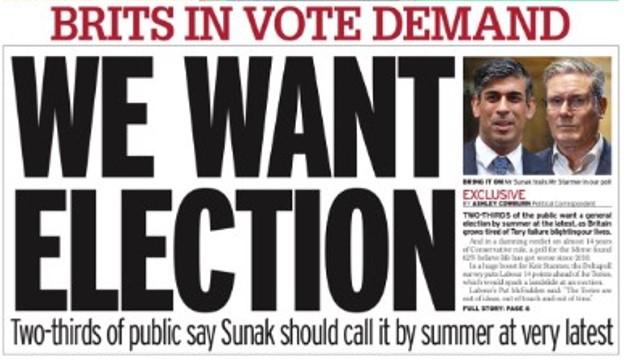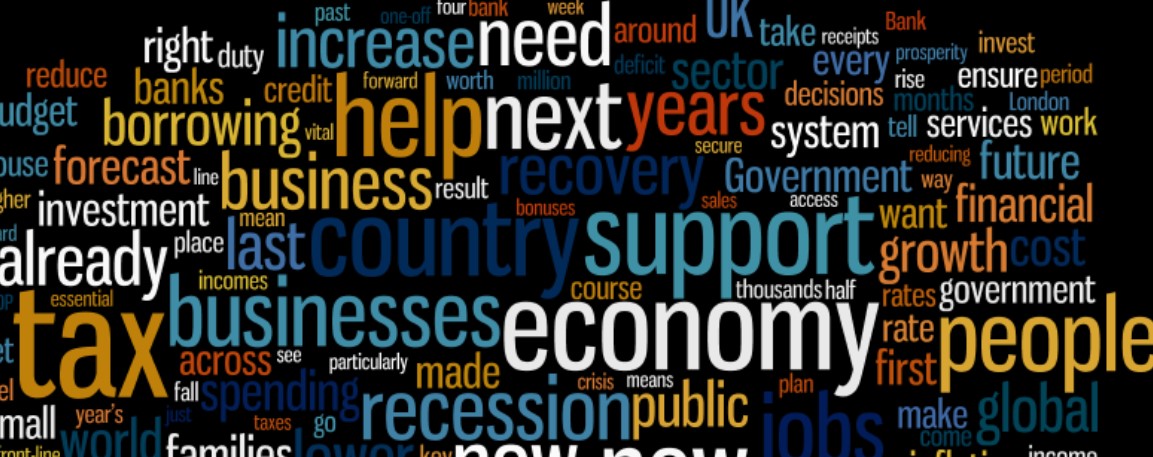It isn’t just the weather that is grey and gloomy this first week of January. It is also the political and economic outlook for the year. No wonder polls show that a big majority of the population are hoping there will be an election as soon as possible. Faced with ongoing austerity and collapsing services, the only silver lining for most people is a chance to ditch the Tories.
Although there are suggestions in the mainstream media that the cost of living crisis is ‘over’ because inflation has peaked, it will come as news to most working class people that their own personal or household crisis is ‘over’. Prices are not coming down, they are merely rising at a reduced rate. Wages for some workers may have risen in 2023 – although only as a result of militant industrial action – but in most cases the rises still did not keeping pace with inflation. Some of the necessities of life, like food, transport, energy and housing costs, are still rising and are due to increase further in 2024.
The miserable economic forecast for this year is not just something dreamt up by the left. It is the consensus of opinion among the 90 economists polled by the Financial Times this week. “UK voters will enjoy higher wages,” the survery suggests, “but continue to struggle with mortgages and rent ahead of the next election as the cost of living crisis gives way to an uneven grey gloom”.
The only chink of optimism, one of them noted, was that the very partial catch-up of (some) wages and the partial reduction in inflation, was like swapping “black gloom” for “grey gloom”. The UK may have avoided the technical recession that had been forecast for 2023, but it was not much consolation that, instead, the economy ‘only’ stagnated.
British business is the worst for investment in the future
Many economists took note of the fact – as articles in Left Horizons have pointed out many times – that the British capitalist class is one of the worst, if not the worst, in terms of investing in plant and infrastructure for the future, and least of all in public services like the NHS and education. It is the continued stagnation in productivity within the economy as a whole that guarantees declining living standards for the UK population for the foreseeable future.

As one of the economists surveyed, a professor of public policy at Cambridge University, pointed out, “The issue isn’t just incomes and inflation, but that people’s experience day to day is getting worse as public services crumble.” She added, “The bill for sustained under-investment in everything from infrastructure, health and education to private business is coming due.”
The economic stagnation will impact on the everyday lives of millions. The research director of the Resolution Foundation warned particularly of “rough justice” on housing costs in the coming year. Those who are likely to face greatest difficulties this year are those households paying rent – and that is a majority of younger families – and the roughtly two million whose fixed-rate interest mortgages are due for renewal.
From soaring housing costs alone many families will struggle. A survey by the homeless charity, Shelter, found that “one in seven lone parents who rent privately – more than 74,000 people – and their children are facing homelessness within weeks”. More than two fifths of single parent families renting reported that they had had to borrow in the past year to pay for rent.
These families are being driven into poverty by the policies of a Tory government in hock to the finance sector and big landlords, driving up rents and interest rates while the housing shortage gets worse. That relentless increase in homelessness will continue into 2024.
“Nothing will improve this side of an election”
The same is true for those on any kind of benefits, which are set to fall below the rate of inflation. As colder weather affects large parts of the UK in the coming two or three months, many families will be faced once again with the choice of eating or heating. For those on low incomes, a marginal decrease in NI contributions will be offset by the freeze on income tax thresholds, meaning that more low paid will be dragged into paying tax.
Supposedly “enjoying higher wages” is therefore a moot point, given that most major wage awards, particularly in the public sector, were below the rate of inflation in 2023 and they are going to have to be fought for all over again this year. An appropriate summary from the majority of the economists surveyed by FT is that “despite falling inflation voters would feel little improvement in their living standards before the general election expected this year”.
As in this one, a feature running through many of the comments of the economists, is the idea that nothing will change this side of a general election, one the Tories have all but give up hope of winning. As one economist noted, “I do not expect a feelgood factor in the run-up to the election.” “Living standards for most will have stagnated over the lifetime of the Parliament,” said another.
“Starmer detached from his own party”
But then, speaking of “grey and gloomy”, we have Keir Starmer, arguably the worst post-war Labour leader, with zero charm, charisma or policies. The leader and his team of policy ‘experts’ have been doing their level best to avoid any commitments to policies that offer meaningful improvements in the lives of ordinary workers.
Starmer is utterly out of touch with the big majority of Labour members, and that has become even clearer over this uncritical support for Israel, despite its savage bombing of Gaza. It is fortunate for Starmer that the disillusionment that is rife among Labour members is not shared by most Labour voters, because they are less involved in the internal life of the labour movement.
But it does not augur well for the prospects of an incoming Labour government that Starmer is so removed from the needs of working class families. In a forthcoming book, Jon Cruddas, Labour MP for Dagenham and Rainham, writes that “apart from his actual name, little ties Starmer to the ethical and spiritual concerns of Labour’s early founders, figures such as Keir Hardie and George Lansbury”.
The impression the Labour leader leaves, Cruddas suggests, is of someone disconnected from the party’s roots and history, often “detached from his own party.” Leaving aside the fact that the Labour Party is not Starmer’s to “own”, the comments of Jon Cruddas offer a serious warning about another important political issue we are going to have to face in 2024.
Assuming that there is a general election this year and that Labour wins it – and both are very likely – socialists and Labour Party members will be faced with a new issue: how to address a Labour administration that bends the knee to capitalism and follows policies dictated by big business and the City of London.
An important glimmer of hope for 2024, and perhaps the only one that persuades tens of thousands to remain in the Labour Party, is the possibility that the affiliated trade unions will at last begin to fight back against the Labour ‘Austerity Tendency’ that Starmer represents.



